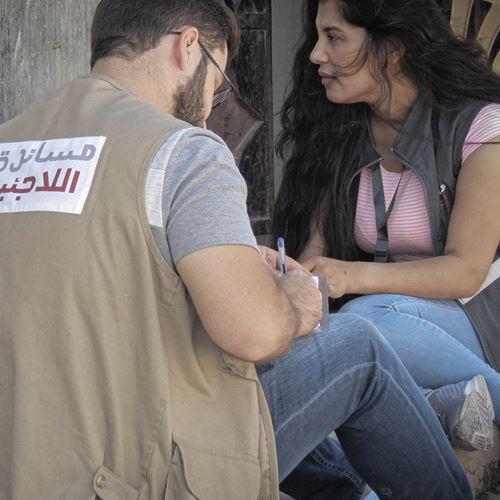Staff Care
Taking care of staff is the most important task for an organisation. Duty of Care is about individual wellbeing, welfare, compliance and good practice, and the DRC Standby Roster gives high priority to staff care and emphasizes the well-being of deployees.

The DRC Standby Roster's Emphasis on Deployee Wellbeing
The DRC Standby Roster is characterized by a strong emphasis and high priority placed on the well-being of all staff on a DRC contract. We recognize that we are only as good as the performance of our staff, however it is not only a matter of efficiency and performance, but also a matter of ethics and securing that the people we engage with receive the best possible support and care.
The DRC has thousands of employees worldwide and takes its duty of care responsibility very seriously. Duty of care for the DRC is a legal and moral obligation that ensures the safety of all people falling within our management control. We will not consciously expose anyone to unacceptable levels of risk, and we exercise due diligence to make sure no one suffers avoidable mental or physical harm. While the DRC duty of care is about safety and security, staff care has a more holistic view on the well-being of our staff.
DRC and the DRC Standby Roster deployees operate in some of the most dangerous places in the world and numerous employees both work and live under very tough conditions. It is often not only security threats or a never-ending workload that pose major challenges, but also feelings of isolation, a lack of privacy, bad or even non-existent supervision, poor accommodation, unhealthy food, illness or a difficult relationship with home-based families. These can all be significant stress factors affecting the well-being of the DRC Standby Roster deployee.
DRC Standby Roster staff care procedures
The DRC Standby Roster is therefore constantly trying to improve the staff support given to its deployees before, during and after a deployment. The staff support offered includes the following elements:
Prior to deployment, the DRC Standby Roster will facilitate individual briefings with experts in order to prepare for the deployment, discuss expectations and inform about administrative practicalities. Prior DRC experience has shown that briefing increases work satisfaction and efficiency, which are both prerequisites for high-level performance. The contents of the briefings are tailored depending on the nature of the assignment. The briefing also contains instruction on the DRC and UN Codes of Conduct (CoC) that apply during mission, and an explanation clearly stating the repercussions for any breach.
Furthermore, the DRC Standby Roster may compile relevant briefing packages as pre-reading material as needed, as well as setting up a safety briefing with the relevant DRC Regional Safety Coordinator. In addition to the CoC, this includes specific information about the receiving mission or agency (mandate, structure, operational sectors and priories) and information on the context in which the mission will take place. The overall responsibility of the operational briefing lies with the UN agencies.
During deployment, the DRC Standby Roster will administer all practical and contractual issues while maintaining regular contact to verify the deployees’ well-being and assist with any needs that might arise. When on mission, all DRC Standby Roster deployees are covered by the expatriate insurance through BUPA Global and Risk Point as well as being insured through the KonTerra Group.
The KonTerra Group is specialized in supporting employees in international humanitarian and development organizations and offers all DRC deployees and their families at home access to free confidential consultations on a variety of topics related to maintaining their personal resilience and well-being as part of a new “Employee Resilience Program”. In this way, DRC deployees have an opportunity to speak confidentially with a trained, objective professional to manage any issue related to their workplace, personal or family life.
At the end of a deployment, the deployee will be asked to submit a written end-of-mission report, which will form the basis of the debriefing. The report asks questions regarding the main lessons learned, problems or positive experiences, and relevant recommendations. Debriefings are done online, and the aim is to address all issues relating to the deployment. This includes an evaluation of the impact and the relevancy of the deployment, an identification of personal and institutional lessons learned, and any recommendations for deployment procedures.
Besides these practical issues, the well-being of the deployee will also be addressed. If any follow-up measures (i.e psychological counselling, health check) are needed, this will be activated and agreed upon.
Both during and after a deployment the DRC Standby Roster offers consultations with psychologists either through the BUPA Insurance scheme or Falck Healthcare.